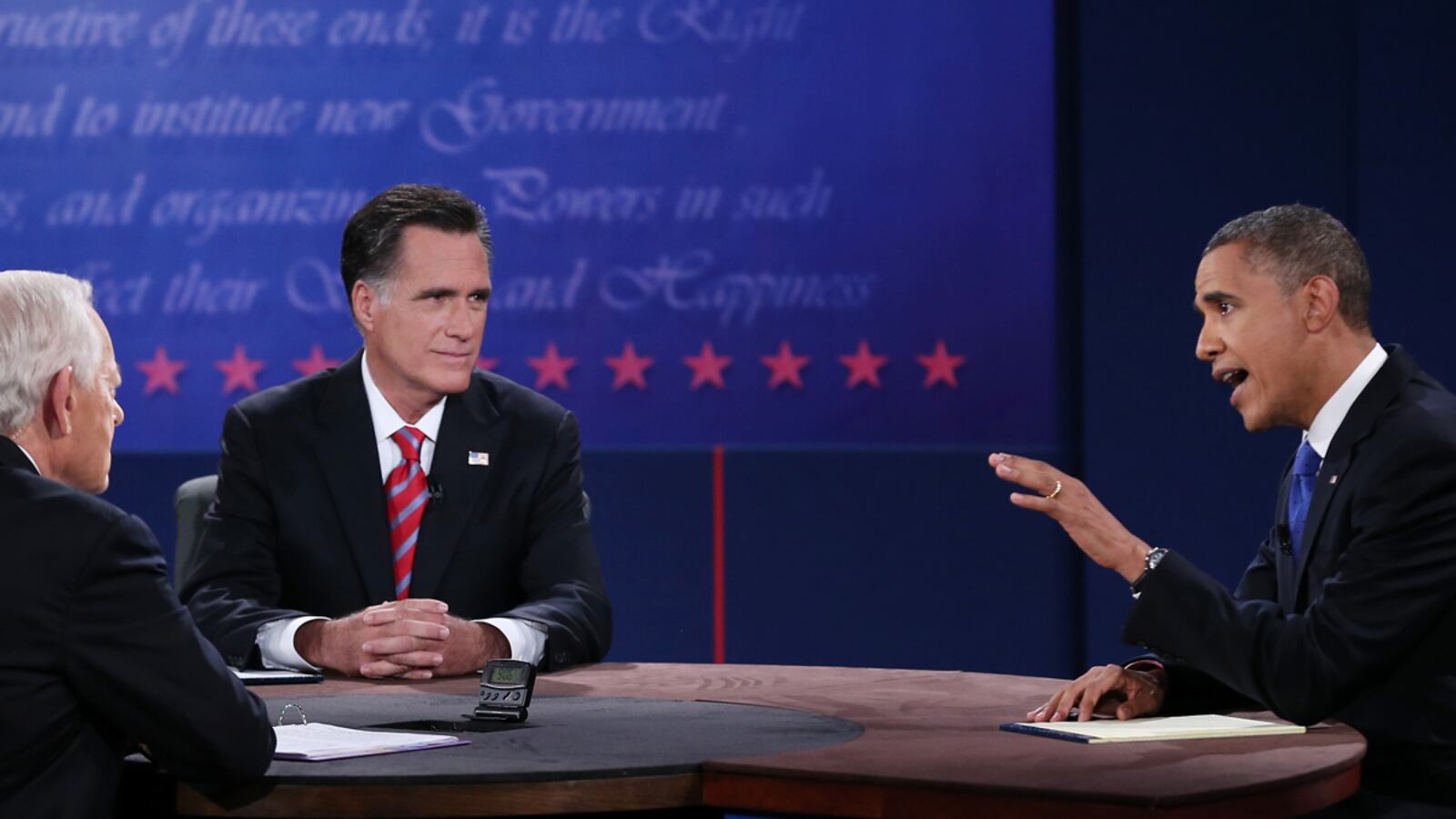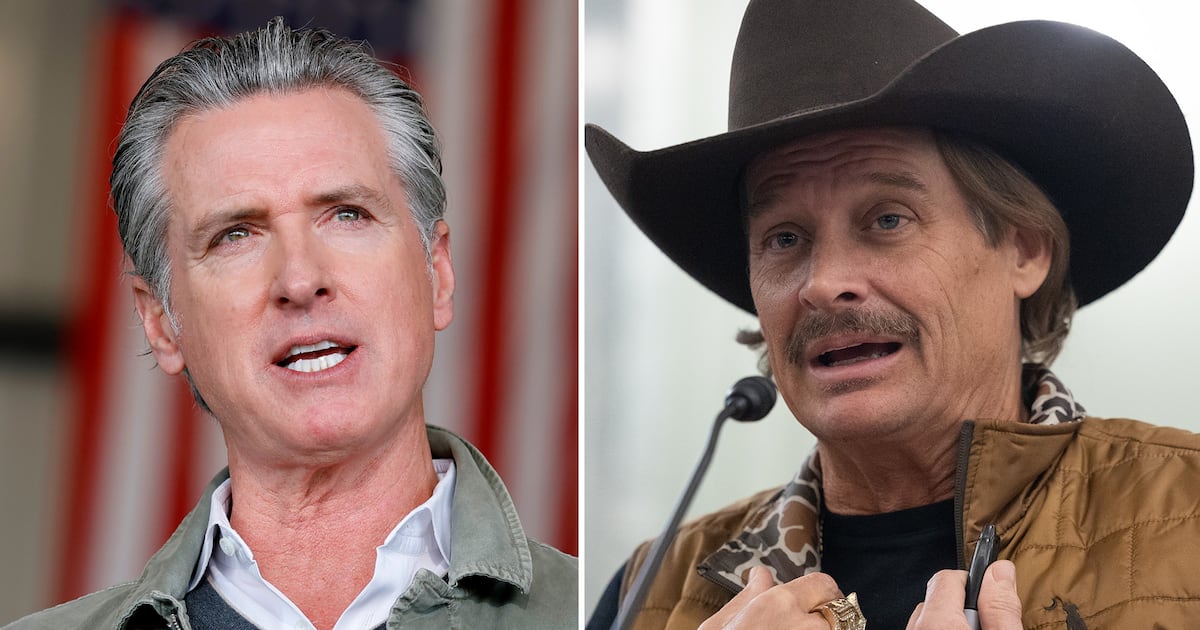Was it just me, or did the Mommy and Daddy Parties switch places in tonight’s debate?

Stylistically, Romney came across as significantly softer than Obama. While the governor maintained the even-keeled, well-modulated manner he has displayed throughout so many of these debates, the president was fierce and crisp, verging on bellicose and pissed-off. Watching Romney speaking, he had a steely gaze that said, “Go ahead. Say something fatuous. I dare you.”
For the most part, the president’s tone fit the gravity of the issues under discussion. But even when he flirted with humor, it was angry humor. “The 1980s are calling, asking for their foreign policy back.” “You say we have fewer ships than 1916. We also have fewer horses and bayonets.” Snap.
On actual policy, the contrast wasn’t as stark—these guys, after all, have much in common—but even there Romney seemed less hawkish. In the early going, he asserted that we “can’t kill our way out” of our national-security problems. And in discussing the oh-so-troublesome Middle East, he invoked the recommendations of a panel of Arab scholars(!) convened by the U.N.(!) to ponder ways to aid the region. Things like more economic development, better education, and “gender-equality measures.” (!)
Half an hour in, Romney was the one to execute the much-anticipated pivot to how foreign policy impacts the economic landscape here at home. It lasted only a few sentences before he shifted to the need for more military funding. (If the CNN focus-group line is to be believed, viewers were disappointed that he pivoted back so soon.) From there the candidates spent the next several minutes bouncing back and forth from the homefront to overseas, with Bob Schieffer doing yeoman’s labor to keep things on track.
Obama’s core message of the night was clear: Romney is dangerously inconstant and confusing on foreign policy. As the POTUS summarized around the one-hour mark: “The problem is, on a whole range issues, whether it’s the Middle East, Afghanistan, and now Iraq. You’ve been all over the map.”
Romney’s message was a bit less focused—America needs to be strong—and far less aggressively conveyed. He was at his most comfortable and passionate during the periods when the discussion turned back to the domestic economy, much less so when the focus was global. Then again, Romney’s goal for the evening was modest: he didn’t need to defend a record or a policy so much as to reassure voters that he is more or less up to the job.
So with neither candidate committing a juicy gaffe for the chattering classes to run with, I’ll be surprised if tonight’s matchup moves things much either way.






